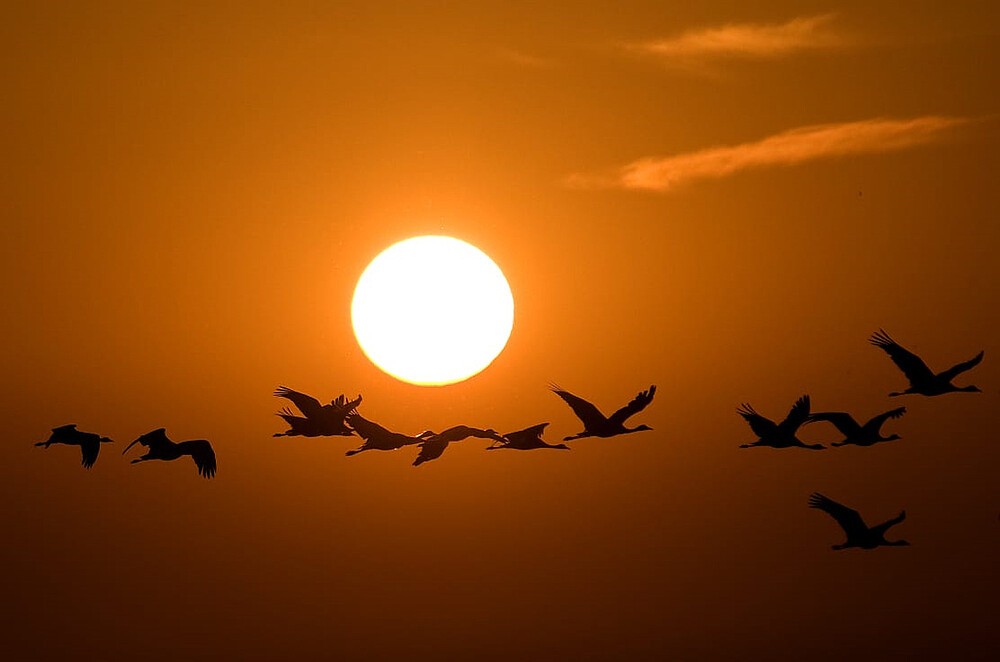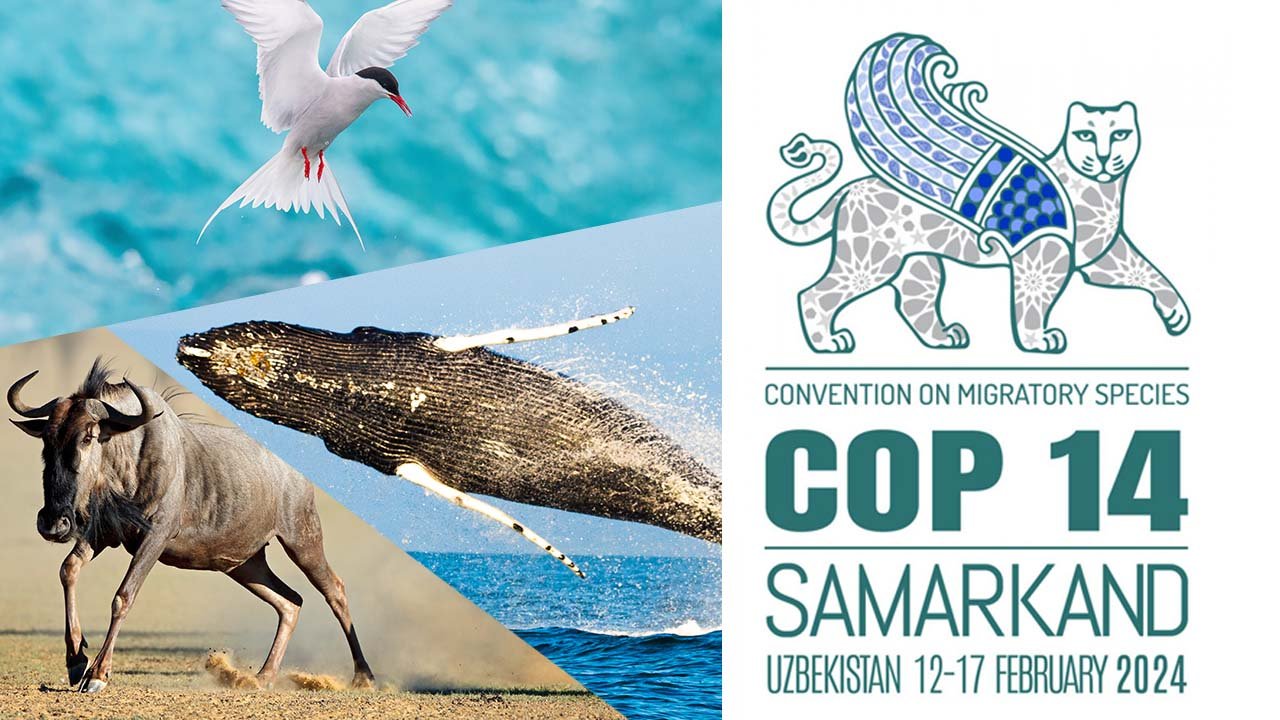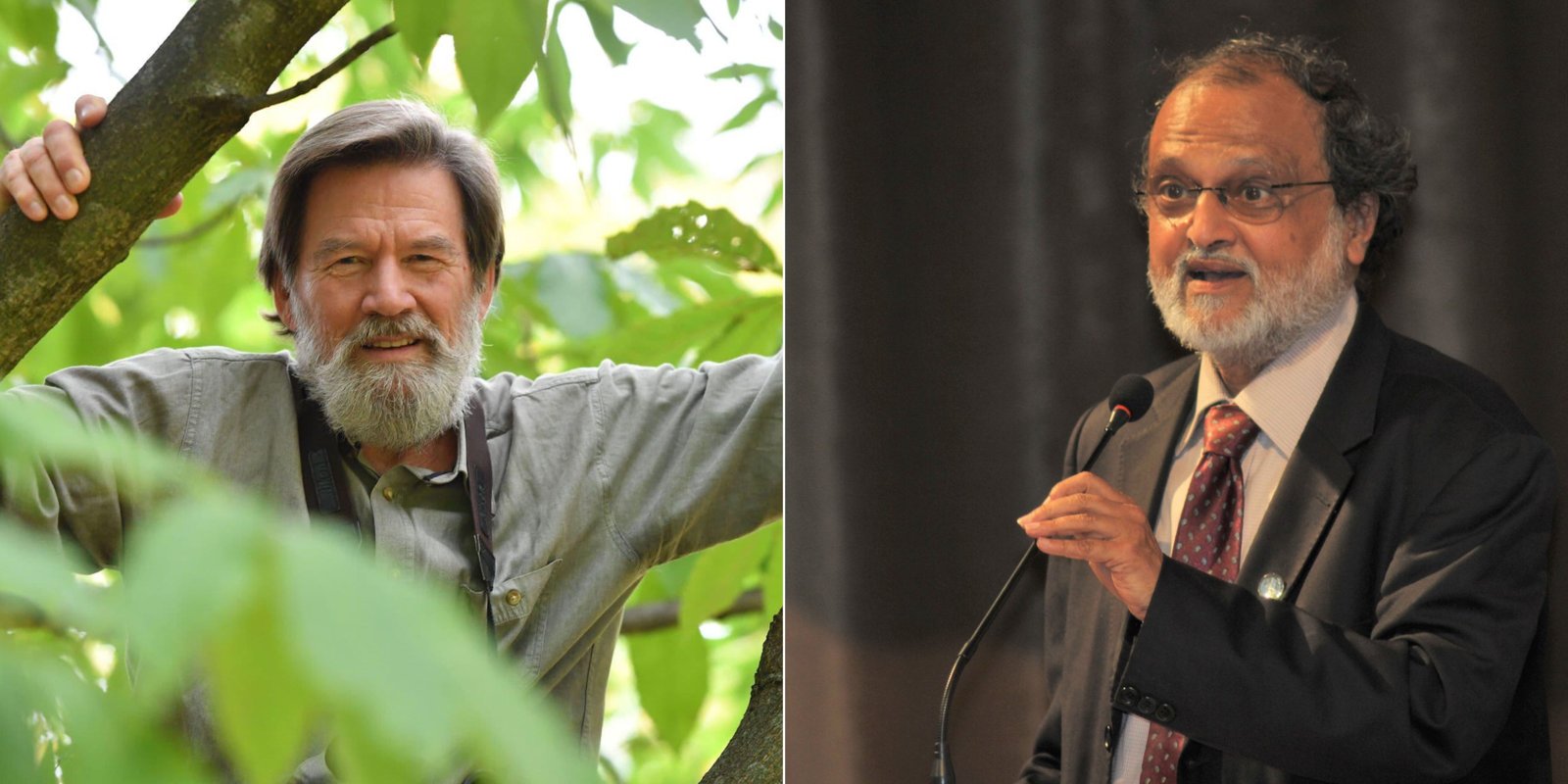SCCN Blogs
Nature Knows No Borders
"Nature knows no borders" is the slogan for the most important UN wildlife conference this year. The 14th Meeting of the Conference of the Parties to the Convention on Migratory Species of Wild Animals #CMSCoP14 will be hosted by the Government of Uzbekistan in the historic city of Samarkand from 12th to 17th February 2024 https://www.cms.int/cop14.
Uzbekistan is a flyway with cross-roads for many migratory bird species between northern Europe and their wintering grounds in Africa and Asia. We can say that these migratory birds carried the messages of the state of the environment in Europe in the North to Asia in the East and down to Africa in the South and back again! But we humans did not understand their language and just spent time in 'bird-watching'.
Let us hope that delegates from 133 countries who will gather in Samarkand will now understand that language and decide on which migratory species need greater conservation action and how to coordinate efforts to protect birds, mammals, reptiles, fish and insects as they cross from one nation to another.
The Born Free Foundation (https://www.bornfree.org.uk) is a partner NGO with the CMS as well as with ECOFLIX (https://ecoflix.com); Ian Redmond (co-author of this article) is an Ambassador for the CMS since 2010 and bio-diversity expert of Green TERRE Foundation (whose founder, Dr Rajendra Shende, is the other co-author of this article) for its projects related to a global network of Universities (https://sccnhub.com/about/experts). Ian will be representing The Born Free Foundation and (informally) Green TERRE Foundation in Samarkand, urging delegates of CMS CoP14 to support resolutions and proposals to better conserve elephants, chimpanzees, big cats, sharks, whales and dolphins among many other important species. Ian is also a co-founder of www.UN-GRASP.org and was first introduced to the CMS through mountain gorillas, whose wanderings across the borders of Rwanda, Uganda and the DRC led them to be the first primate species listed on the CMS Appendices. Now, both species of gorilla are listed, along with chimpanzees and several other species of mammal not usually thought of as migratory by biologists, but whose cyclical, predictable movements across international borders mean that they fit the legal definition of migratory species.
Across the world, the arrival and departure of migratory species are important to many people, particularly rural farmers, whether in the UK or India or South Africa or China. In the UK and Europe, the call of the cuckoo tells us Spring is here, and the swooping of swallows and swifts signifies Summer - but these birds spend their winter months in Africa feeding on insects whose life cycles are ecologically linked to elephants, apes and lions. It is no good conserving habitat in the UK or China without considering the threats faced by the same migratory birds when they spend half the year elsewhere.
The example of the Swifts Apus apus pekinensis nesting in the Imperial Palace in Beijing springs to mind. Swifts are a family of birds, the Apodidae - the fastest in the world that spend 10 months of the year on the wing without landing! To study these swifts researchers fitted geolocators to several birds and discovered their remarkable routes flying all the way to South Africa and back without touching the ground! Four species of swift are being considered for potential listing on the CMS appendices, but not yet the Common Swift, though there is concern over its declining population – likely due to a decline in insect numbers being reported in many parts of the world.
India, which hosted the last CMS CoP in 2020, is also important for migratory species, such as elephants and tigers on land, whales, turtles and sharks in the Indian Ocean, and birds flying over - from Siberian Cranes to Greater Flamingos and from Amur Falcons to Blue throats - the sub-continent provides a welcoming ground for them whether seasonal habitat or transition-halts en route elsewhere.
While birds seek breeding grounds, university campuses are breeding grounds for researchers on the science of bird-migration. We have not only understood their language but we also do not know fully their behaviour patterns. How do birds find their destination without Google Maps, how do they communicate with each other in planning and halting without the internet and iPhones? Keeping track of the migratory birds visiting the university campus, and how the impact of climate change would impact the migration of migratory birds are among the subjects being promoted for the research in the Universities across the globe. They include Beijing University, the Royal University of Bhutan, the University of SJP in Sri Lanka, and HNB Garhwal University in India which are in the network of the Green TERRE Foundation. We encourage other universities to join the network!
CMS, meanwhile, helps make the world a safer place for migratory species all along their flyways, swimways or pathways, whether between neighbouring countries or the opposite ends of the earth.
Authors:
Ian Redmond OBE is Head of Conservation for Ecoflix, the world's first not-for-profit TV channel and streaming platform dedicated to animals and the planet, Senior Wildlife Consultant for the Born Free Foundation and Ambassador for the UN's CMS.
Rajendra Shende is the former director of UNEP, Coordinating lead author of IPCC that won the Nobel Peace Prize in 2007, founder Director of Green TERRE Foundation and pioneer of a global network of Universities for the localisation of SDGs and Net Zero.
When you subscribe to the blog, we will send you an e-mail when there are new updates on the site so you wouldn't miss them.







Comments